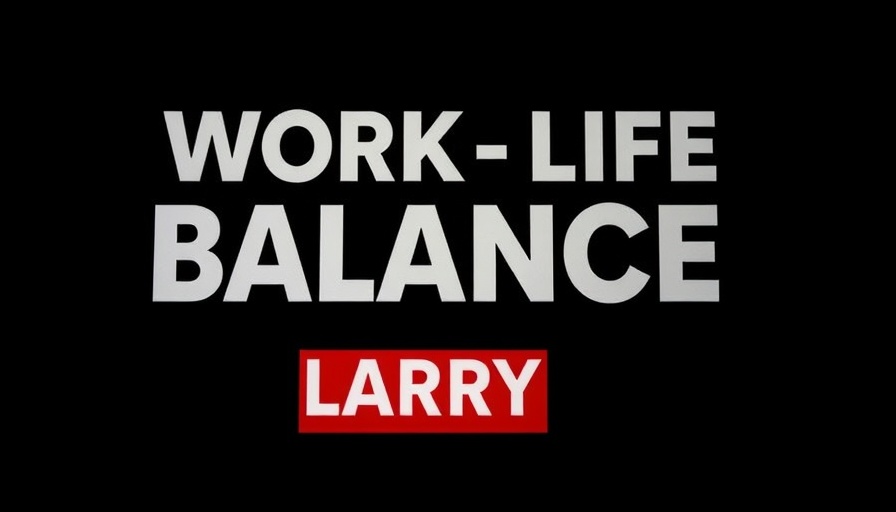
Why Work-Life Balance Matters in the Automotive Industry
In today's fast-paced automotive environment, achieving a healthy work-life balance is vital for car dealerships and their employees. Over 60% of US employees, including those in the automotive sector, report feeling overwhelmed by the demands of their jobs, often sacrificing personal time, family engagements, and even health. Just as a car needs regular maintenance to run smoothly, our lives require attention and balance to function optimally.
In LarryTalk #32, we delve into the crucial topic of work-life balance, exploring key insights that sparked deeper analysis on our end.
Understand What You Value
As Larry J. Feldman emphasizes in his LarryTalk #32 on Work/Life Balance, determining what is most important in our lives is essential. For car dealership owners, it’s crucial to prioritize both professional goals and personal commitments. Mapping out these priorities can aid in achieving a satisfying balance. Ask yourself: What aspects of my life are non-negotiable? What can I afford to sacrifice?
Teaching Balance with Training
In the automotive industry, training programs such as automotive training center initiatives or automotive classes online can help empower employees to succeed both personally and professionally. When dealership staff are trained effectively in auto sales, it not only enhances performance but also frees up time for them to focus on their lives outside work. Events like car training days encourage a sense of teamwork and camaraderie, which can ease the pressure of daily tasks.
Creating Scheduled Breaks
Feldman suggests taking moments to recharge throughout your day. Dealerships can implement policies that encourage employees to take breaks for personal time, whether it's a quiet moment in their car listening to their favorite music or scheduling family dinners. When employees feel supported in their personal lives, they tend to perform better at work, leading to more effective sales interactions and improved customer satisfaction.
Mindfulness as a Key to Balance
Integrating mindfulness into daily routines can also cultivate a healthier workplace. Encouraging staff to reflect on their stress levels and providing resources for stress management can significantly impact their work-life balance. This approach may also inspire dealerships to include automated online courses focused on both professional and personal development, ensuring employees feel supported holistically.
Building a Culture of Support
Creating a supportive culture is crucial in the automotive field. Work-life balance isn't just beneficial for employees; it fosters loyalty and reduces turnover in dealerships. Leaders should model this balance themselves, openly discussing how they prioritize their family commitments and personal well-being. By establishing that culture, staff will feel empowered to do the same.
The Long-Term Benefits
Ultimately, a balanced life leads to happier employees and, as a result, more successful dealerships. By adopting strategies that prioritize work-life harmony, car dealerships can witness significant improvements in both employee satisfaction and overall performance. The key takeaway is to encourage both personal fulfillment and professional excellence, paving the way for a thriving business.
 Add Row
Add Row  Add
Add 




Write A Comment